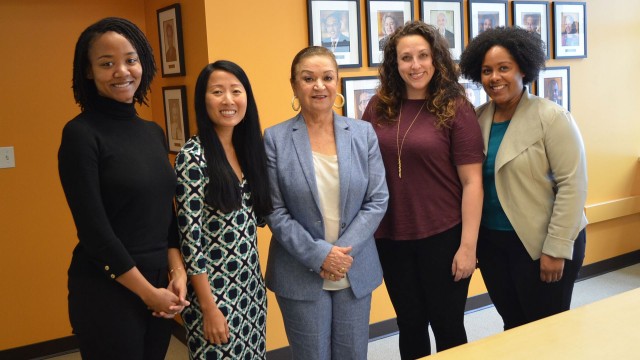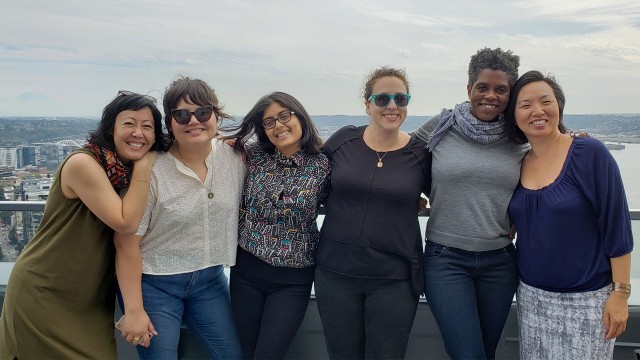
Kevin Truong is currently a grants program analyst at Bezos Family Foundation and is part of the third cohort of Philanthropy Northwest's Momentum Fellowship program.
For most of my life, the word “philanthropy” was nonexistent in my vocabulary. I always had the desire to pursue a career where I could make a positive difference, but I associated philanthropy with wealth and often only saw rich people as philanthropists. At a young age, I was conditioned to pursue a career in healthcare or engineering, believing that these career paths were the ladder to success. When I entered college, I was exposed to new opportunities. My undergraduate degree was in law, societies and justice, and in graduate school I earned a master's degree in public administration (MPA). These were all non-mainstream focuses and I had the uncomfortable experience of being one of the few students of color in my classes. In hindsight, I realized that my educational and professional milestones were significantly influenced by my white peers who had more career insight than me. My opportunities were limited because of a lack of generational knowledge. Besides what I saw as traditional career paths, like healthcare, business, tech or engineering, I didn’t know what other career tracks existed. It took a program like Momentum Fellows, which intentionally creates opportunities for people of color, for me to discover a pathway into a field where my lived experiences and nonprofit skills perfectly aligned. Coming from a low-income immigrant community, my options felt limited. But success is multifaceted and I hope that more people of color will be inspired to enter the field of philanthropy.
My professional career was exclusively in college access prior to entering philanthropy. As a college mentor turned executive director of my own nonprofit college mentorship organization Hey Mentor, I was accustomed to collecting data on education outcomes because I knew that capturing value was an important role in nonprofit work. Information like the number of students enrolled in a postsecondary institution, the number of students who completed their financial aid application and applied for scholarships, and other measurable evidence of success were all numbers that I was familiar with. When I first joined the Bezos Family Foundation, I sometimes wondered why our vision was for all young people to unlock their full potential and to make a meaningful contribution to society. Initially, I felt that this idea was vague because my experience suggested that the emphasis should be placed on a more visible problem. I believed that the priority should be to help low-income youth achieve financial stability through STEM, higher education and workforce development. However, I realized that my vision was shortsighted. We can’t expect to see gains in economic mobility by only investing in the educational outcomes of students while, developmentally, some students are lagging behind their peers. Working at the foundation has taught me two things: 1. Unlocking a child’s full potential by supporting their developmental needs will build the necessary foundation for them to achieve their goals and 2. We need to expose more young people and people of color to the field of philanthropy. I’m thrilled that my work is part of a pipeline that supports prenatal and early childhood to adolescent development. I appreciate that my organization is intentional about instilling the value of giving and civic action in youth at an early age through our programs and investments because every individual has a role in the good of society.

